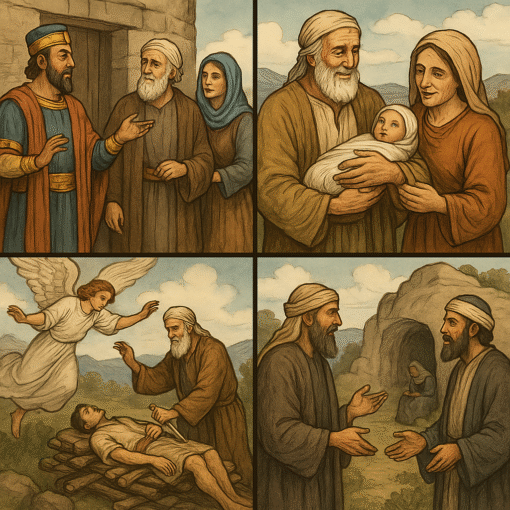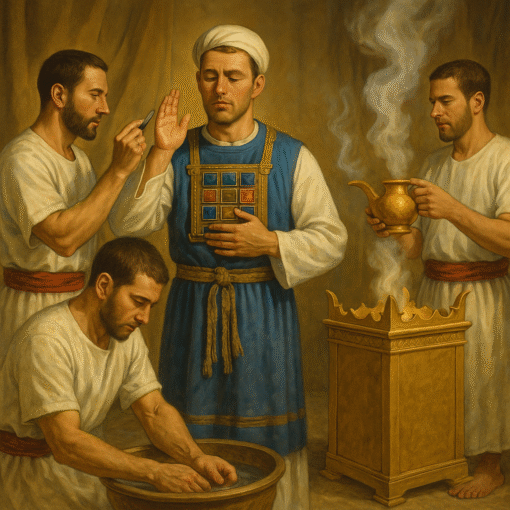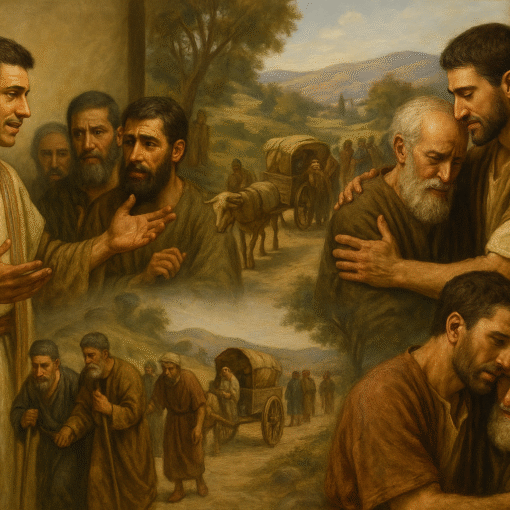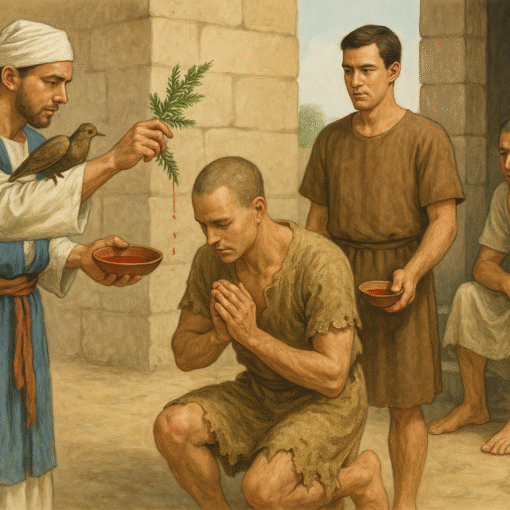1. The Institution of the Passover (Exodus 12:1–30)
-
God instructs Moses and Aaron to set the month of Abib as the first month of the year.
-
Each household is to take a lamb without blemish, kill it, and apply its blood to the doorposts and lintel.
-
The lamb is to be roasted with fire and eaten with unleavened bread and bitter herbs, none left until morning.
-
God promises to pass through Egypt, smiting the firstborn of man and beast, but will “pass over” the homes marked with blood.
-
At midnight, the LORD smites all the firstborn of Egypt, including Pharaoh’s son. A great cry arises in Egypt, and Pharaoh urges Israel to leave immediately.
2. The Exodus from Egypt (Exodus 12:31–51)
-
Pharaoh calls for Moses and Aaron by night, commanding them to depart with their people and their flocks.
-
The Egyptians press the Israelites to leave quickly, even giving them jewels of silver and gold.
-
Israel departs in haste, carrying unleavened dough, and begins their journey from Rameses to Succoth, about 600,000 men on foot besides women and children.
-
The Passover is declared an ordinance for all generations, to be observed by Israel forever.
3. Consecration of the Firstborn (Exodus 13:1–16)
-
God commands that every firstborn male, both of man and beast, be sanctified to Him.
-
Moses reminds the people of the mighty deliverance from Egypt and instructs them to keep the Feast of Unleavened Bread for seven days each year.
-
The law of redemption for the firstborn is established: firstborn males belong to God, but a lamb may be sacrificed in substitution.
-
These ordinances serve as a memorial and a teaching tool for future generations, a “sign upon thine hand” and “frontlets between thine eyes.”



